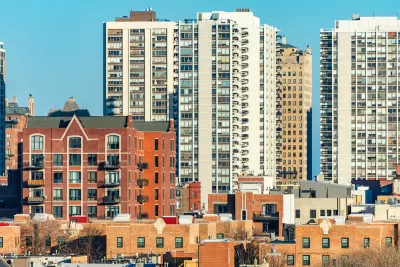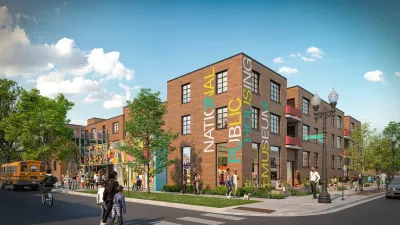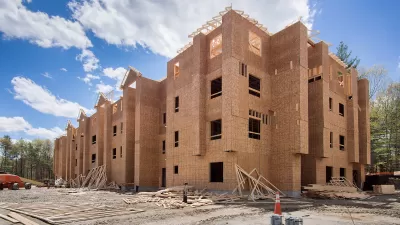Higher taxes on high-value property sales are being considered in Chicago, Connecticut, and Washington state as a way to address the housing crisis.

One-time fees on the sale or purchase of property, often called real estate transfer or real estate excise taxes, are nothing new. As Kevin Hardy explains for Stateline, such fees have been a fixture of many tax codes for decades. “But local and state governments are increasingly looking to create a ‘mansion tax’ targeting the higher ends of the real estate market” with the aim of tackling the growing housing crisis, he writes.
To date, 16 cities and counties and seven states have approved that type of tax, many with the intent of putting the revenue to building affordable housing. Though not without pushback. The approach has led to litigation in Santa Fe and Los Angeles. But that’s not stopping other cities and states from considering it, including Chicago, Massachusetts, and Washington state, according to the Stateline article.
In March, “Chicago voters will decide whether to approve Democratic Mayor Brandon Johnson’s Bring Chicago Home referendum, which would increase the real estate transfer tax on expensive properties. And legislators in Massachusetts are weighing a bill that would allow cities to impose their own real estate transfer fee,” Hardy reports. Washington state lawmakers are also considering a bill that would increase the tax on property sales above $3 million, while decreasing it for less expensive sales.
FULL STORY: If you can buy a ‘mansion,’ you can pay a tax for affordable housing, these states say

Alabama: Trump Terminates Settlements for Black Communities Harmed By Raw Sewage
Trump deemed the landmark civil rights agreement “illegal DEI and environmental justice policy.”

Study: Maui’s Plan to Convert Vacation Rentals to Long-Term Housing Could Cause Nearly $1 Billion Economic Loss
The plan would reduce visitor accommodation by 25% resulting in 1,900 jobs lost.

Planetizen Federal Action Tracker
A weekly monitor of how Trump’s orders and actions are impacting planners and planning in America.

Waymo Gets Permission to Map SF’s Market Street
If allowed to operate on the traffic-restricted street, Waymo’s autonomous taxis would have a leg up over ride-hailing competitors — and counter the city’s efforts to grow bike and pedestrian on the thoroughfare.

Parklet Symposium Highlights the Success of Shared Spaces
Parklets got a boost during the Covid-19 pandemic, when the concept was translated to outdoor dining programs that offered restaurants a lifeline during the shutdown.

Federal Homelessness Agency Places Entire Staff on Leave
The U.S. Interagency Council on Homelessness is the only federal agency dedicated to preventing and ending homelessness.
Urban Design for Planners 1: Software Tools
This six-course series explores essential urban design concepts using open source software and equips planners with the tools they need to participate fully in the urban design process.
Planning for Universal Design
Learn the tools for implementing Universal Design in planning regulations.
Caltrans
Smith Gee Studio
Institute for Housing and Urban Development Studies (IHS)
City of Grandview
Harvard GSD Executive Education
Toledo-Lucas County Plan Commissions
Salt Lake City
NYU Wagner Graduate School of Public Service





























